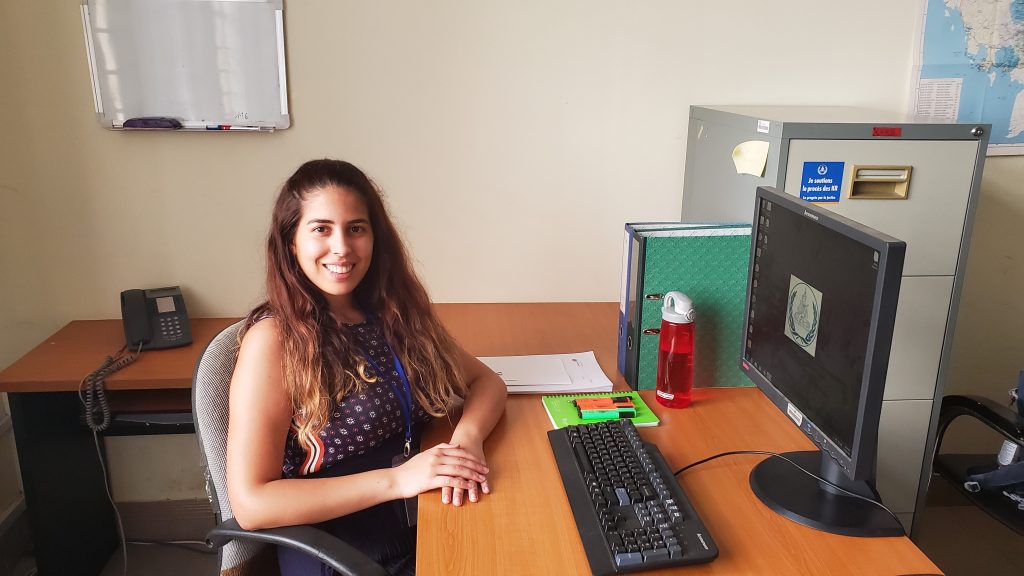by Merve Ciplak
 I’m about halfway through my twelve weeks interning at the Supreme Court Chamber of the Extraordinary Chambers in the Courts of Cambodia. The court is a UN-Cambodian hybrid tribunal trying the leaders of the crimes committed by the Khmer Rouge regime in the ‘70s under Pol Pot, and is therefore focused on international (and local Cambodian) criminal law. The court currently has a number of cases at different stages and in different chambers. My work is focused on the ongoing appeal for Case 002/02, charging two of the senior leaders of the Khmer Rouge. The case is monstrous by US legal standards – the Trial Chamber issued their final judgment exceeding 2,200 pages earlier this year, and in the beginning of July, the two defense parties and the prosecution submitted a list of their grounds of appeal, totaling over 2,100 grounds across the parties. Most of the work I’m doing focuses on breaking down and analyzing the numerous crimes, findings, and evidence in the judgment to better understand the submitted grounds for appeal and any other issues the Supreme Court is considering. I work directly with one of the UN-appointed judges, Judge Florence Mumba, and it’s been a fascinating experience to work for a judge with no intermediary clerks. There is much more independence involved in our working style, and my assignments are self-guided and larger in scope than I would have expected before starting my internship.
I’m about halfway through my twelve weeks interning at the Supreme Court Chamber of the Extraordinary Chambers in the Courts of Cambodia. The court is a UN-Cambodian hybrid tribunal trying the leaders of the crimes committed by the Khmer Rouge regime in the ‘70s under Pol Pot, and is therefore focused on international (and local Cambodian) criminal law. The court currently has a number of cases at different stages and in different chambers. My work is focused on the ongoing appeal for Case 002/02, charging two of the senior leaders of the Khmer Rouge. The case is monstrous by US legal standards – the Trial Chamber issued their final judgment exceeding 2,200 pages earlier this year, and in the beginning of July, the two defense parties and the prosecution submitted a list of their grounds of appeal, totaling over 2,100 grounds across the parties. Most of the work I’m doing focuses on breaking down and analyzing the numerous crimes, findings, and evidence in the judgment to better understand the submitted grounds for appeal and any other issues the Supreme Court is considering. I work directly with one of the UN-appointed judges, Judge Florence Mumba, and it’s been a fascinating experience to work for a judge with no intermediary clerks. There is much more independence involved in our working style, and my assignments are self-guided and larger in scope than I would have expected before starting my internship.
In addition to the work I’m doing, I got the very exciting opportunity to sit in on the three-day Pre-Trial Chamber hearing for Case 004/02, which is the appellate hearing to determine whether the court has personal jurisdiction to try an accused party as one of “those most responsible” or not (pictured below — I am at the very left beyond the glass in the courtroom). It was surreal to watch everything we’ve studied and read about academically come to life in person, and to know that we were witnessing a moment that will one day form a critical portion of history and justice in remedying and documenting a series of atrocities that took place over forty years ago. This hearing was also probably one of the last that the court will hear as its mandate comes to an end, so it was a hugely unique chance for us.

Credit: Extraordinary Chambers in the Courts of Cambodia
For anyone interested, most of the court’s filings and documents are public and published online as they take place. I personally found it fascinating to read up on the cases before I started my internship and will probably continue to do so after my internship is done.
Merve Ciplak, a first-year student in HLS’ joint JD/MBA program, is a 2019 Chayes International Public Service Fellow. This summer, she is working at the Extraordinary Chambers in the Courts of Cambodia, located in Phnom Penh.
